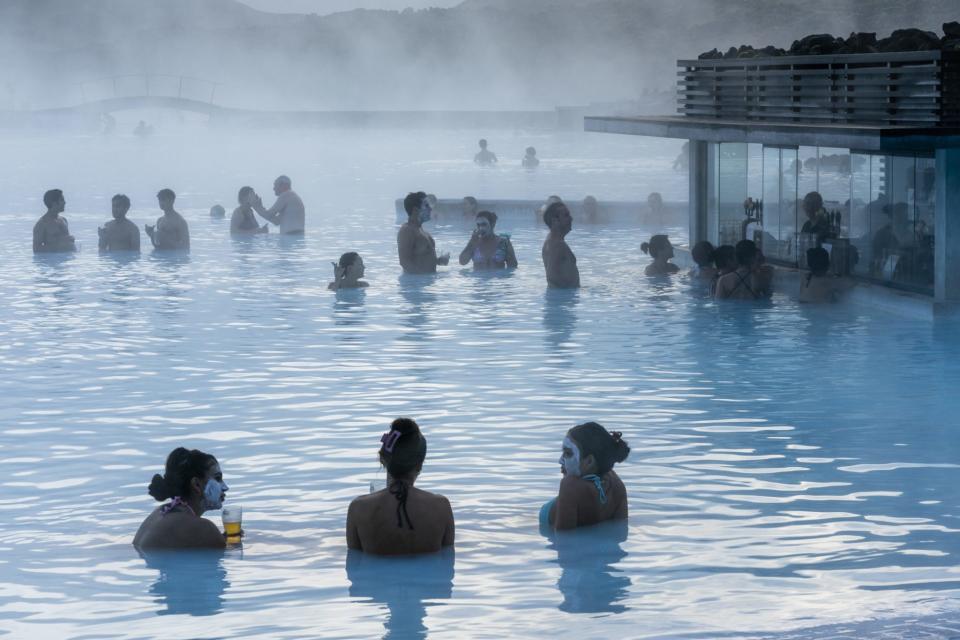‘Overtourism’ crackdown enters Iceland as the country plans new measures to prioritize locals over hot spring-obsessed visitors

Iceland has a complicated relationship with tourism.
Home to hot springs and volcanos, Iceland has wanted to lure tourists with its stunning natural attractions. This set off a meteoric rise in visitor numbers, soaring from less than 500,000 in 2010 to an expected 2.3 million this year. While that’s created a cash cow for Iceland’s tourism industry, it’s also created fresh housing troubles for those who call the country home.
But the country has had enough. It now wants to clamp down on “overtourism” with taxes and higher fees to check tourist numbers while not harming a lucrative sector of its economy.
“We are trying still to mold the taxation system for the tourism sector for the future,” Icelandic Prime Minister Bjarni Benediktsson told CNBC on Monday.
A possible new measure would be similar to surge pricing, wherein a higher tax would be charged during peak travel than at other times of the year—although this is still in the works, Benediktsson added. He also said a “sustainability balance check” was considered to look after Iceland’s nature and local communities.
Earlier this year, Iceland reintroduced a tourist tax that it scrapped during the COVID-19 pandemic. The modest fee—around 600 Icelandic krona ($4.34)—applies to hotels, campsites, cruise ships, and other forms of accommodation. While Benediktsson sees the measure as an “important decision,” he also thinks more must be done.
“We would like to lean more towards a system where the user pays. As I see it, we would want to go more toward accession fees to the magnets, as we call them, around the country,” the prime minister said.
Tourism is important to the Icelandic economy as it derives 8.5% of its GDP from the sector, according to data from Statistics Iceland. From Game of Thrones fans to Blue Lagoon enthusiasts, Iceland has piqued the interest of many. The number of visitors has increased in the last few years despite interruptions like the COVID-19 pandemic and volcanic eruptions.
At the same time, locals have wrestled with finding homes to rent as more are swept into short-term rentals for visitors. Prices have also increased with higher interest rates, often pricing tenants out.
Iceland isn’t alone in resisting overtourism—Venice recently imposed a $5 short-term visitor fee that could help curb footfall in a city that’s famously swamped with tourists for much of the year.
Given the interest in the historic Italian city, Venice collected €37 million ($39.6 million) from tourist taxes last year.
On the other hand, Spain has included a new fee that reflects on hotel bills, contributing towards a fund for heat pumps and solar panels at schools.
“So far we have spent these taxes on compensating the impact tourists have on the city, including cleaning services, safety and public transport,” Jordi Valls, Barcelona’s head of economic and tourism promotion, told Bloomberg in February. “This year we’ve decided to go a step further and spend the tax on financing public services from a climate point of view.”
It’s unclear if these charges will turn enough visitors away to solve the issue of overtourism and its consequences. In Venice, for instance, the new charge hasn’t depressed visitor numbers just yet. Locals have also protested against the tourist tax policy, arguing it might not have as much of an impact.
With the pandemic in the rear-view mirror, thousands of more tourists are expected yearly in Iceland. The country has the tall task of finding policies that balance encouraging tourists to still come to the city while limiting their numbers and prioritizing the locals.
This story was originally featured on Fortune.com

 Yahoo Finance
Yahoo Finance 